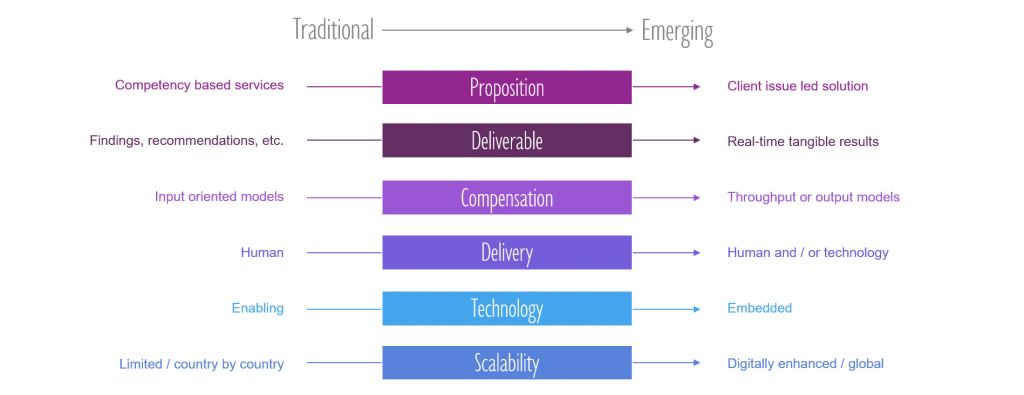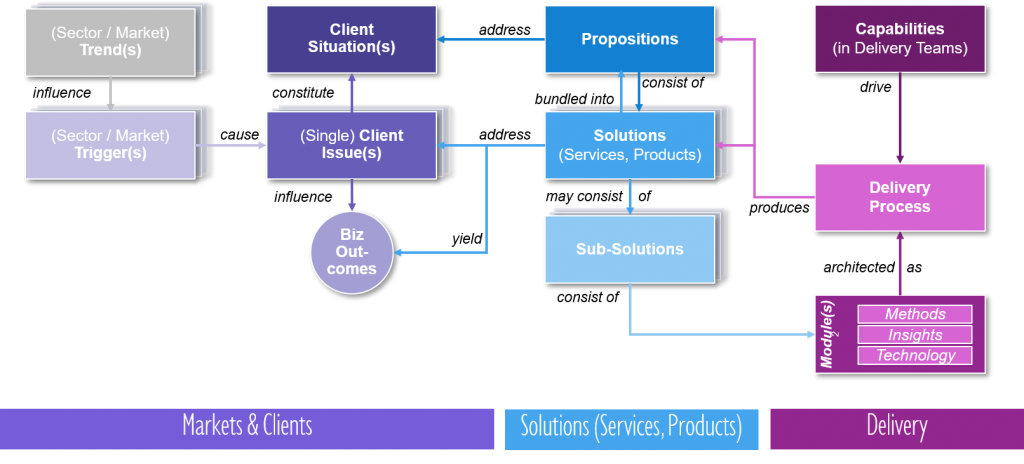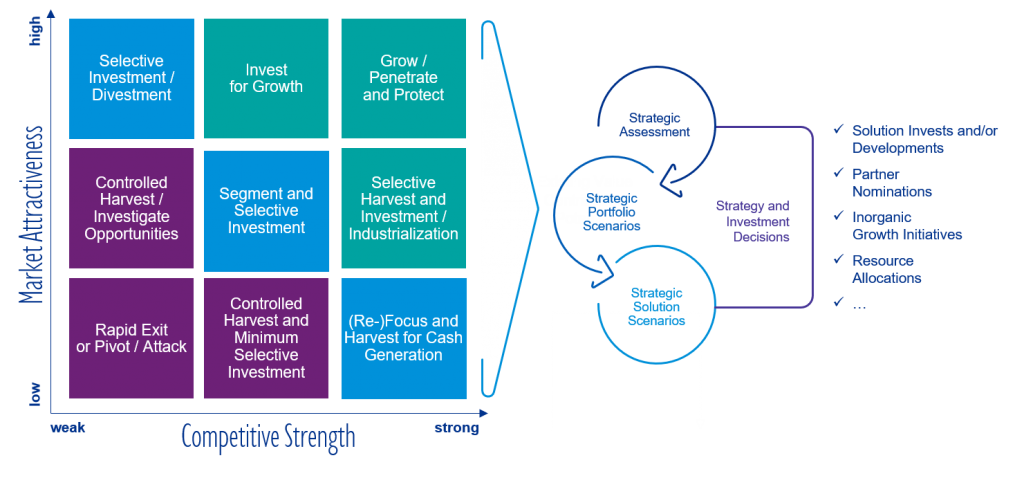an article by Sebastian Hartmann, June 2019
How long would a C-level executive in any sizable company stay in his position if he could not answer basic management questions, such as
- What does your strategic portfolio look like?
- What is the revenue for each of your products and services?
- How profitable is each one?
- Where are these products and services in their lifecycle?
- …
Yes, we think so, too.
Yet, many professional service firm (short: PSF) leaders cannot answer these questions on a meaningful level of detail. And if they were questioned by shareholders interested in the firm‘s value, they would often not be able to explain their investment logic – and clearly not down to the individual product or service item level.
Of course, many consultants would gladly advise their clients on these questions …, but asking them for their own business? Why would they? Growth has been great for many professional service firms and seems mostly limited by the availability of resources. Profitability is still insanely high (at least compared to other industries) and the dominant partnership model incentivizes short term profitable revenue and not firm value. Younger partners may have a different opinion (based on their personally longer investment horizons), but are usually not in a position to influence these decisions.
However, the game is changing… and has already changed in some cases: Clients are more sophisticated and look for clearer and more tangible value propositions. The professional services market is more transparent and execution focused. We see new business models emerging, new value chains and required capabilities and thus new structures, roles and career paths. Investments are required, which by far exceed the traditional approach of hiring some senior rainmakers, leveraging them with junior staff and watching the investments paying off within a year.
Instead, the new game requires upfront investments just to win a client: PSFs need to show up with ready to deploy solutions (plus some degree of customization). Technology is creeping into every corner of the business – and not just as tools, but as the client deliverable itself: Clients want reliable results at a certain price and do not care about the number of hours or days required to deliver them. And the once much-needed knowledge is nowadays available at no costs or much lower costs. Methods and insights need to be orchestrated in a reliable way and the „artisan guild“ is chased by cohorts of industrialized knowledge workers – and much more „digital“ approaches.
Yes, even the most knowledge-based PSFs are beginning to adopt the term „solution“ which has been mostly coined by technology providers up until now. Consultants, auditors, accountants, lawyers, engineers, marketing, PR, comms and creative agencies now have to invest in, design, build, deploy and operate technology in order to be competitive, efficient and capable of delivering tangible value to clients. The following graphic tries to capture this change in a nutshell:

I believe that PSF leaders (especially in the larger and more diversified firms) need to do at least three foundational things on the management level in order to ensure their firm‘s future readiness and continued success in this changing game:
1. Adopt a relentless client-centric solution view to the business: A PSFs management needs to be acutely aware of their clients‘ issues and which solutions they are selling to them as well as how exactly these solutions are architected, delivered and managed:

“You can’t manage, what you can’t measure” – and the solution view is here to stay as a key business object for professional service firms, which needs at least the same kind of management attention as the two traditional “business objects” (clients and resources). A clear and shared definition of this solution lens is the foundation.
2. Assess solutions strategically as a portfolio: Strategic leaders need to evaluate each solution in terms of its market attractiveness and competitive positioning – using suitable criteria, facts, and figures, which enrich the leadership team’s gut feeling with external data and critical assessments:

The resulting views will help to guide richer and more value- and potential-oriented strategy discussions and decision making (e.g. for solution developments, partner nominations, inorganic growth, divestments, resource allocations, etc.). This may be especially important when the professional service firm operates in a traditional partnership model: Partners need to understand the reasons for investments – and why they should pay for it.
3. Establish a conscious solution lifecycle management: Manage solutions conscious of their strategic position and interdependencies (see my previous point) through their lifecycle in order to maximize growth opportunities, competitive positioning, harvesting and ultimately investment returns – by experimenting with and exploiting new business model opportunities and the next generation of management levers. This will require to adopt what other industries would simply call product management – but adapted to the characteristics of professional service firms. This is also where traditional role models and career paths are challenged.
Let me be clear that these three elements will NOT be able to solve all problems, which PSFs may encounter as they work through their paradigm shift and transformation. But they do help to answer some fundamental questions – repeatedly and whenever they arise. They are also not isolated efforts happening somewhere away from the daily business in some ivory strategy tower. Instead, they are foundational elements for systematic and impactful management on both strategic and operational levels – and fill a major gap, which can be identified in a large number of PSFs today. They are a key element of the next generation playbook for the leaders and managers of PSFs today and (even more so) tomorrow.
Follow me on LinkedIn or Twitter for regular updates and information about Professional Service Firm management and leadership: #NextGenPSF
Looking forward to hear your thoughts!